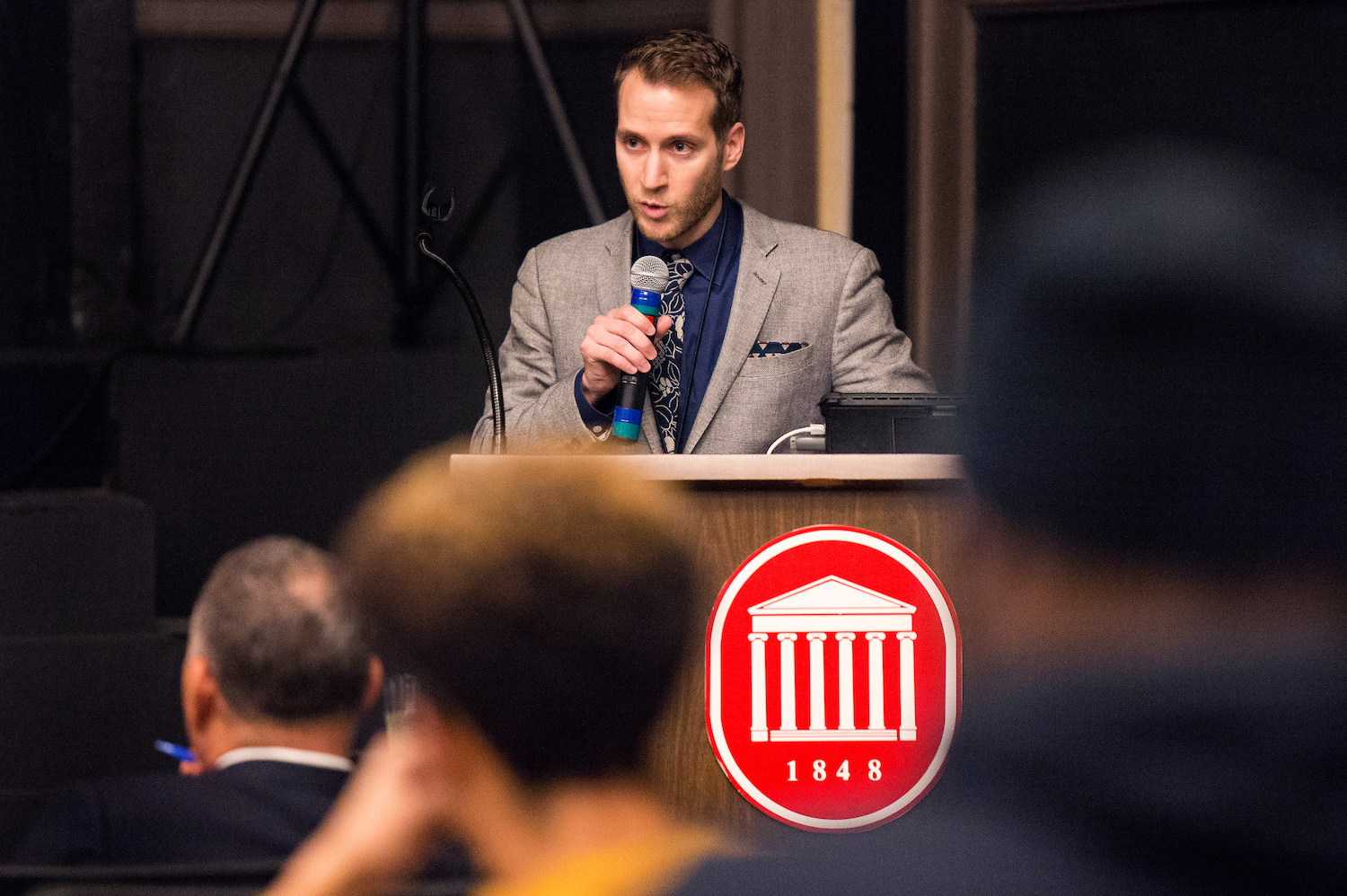Yesterday, the United Campus Workers of Mississippi responded to University of Mississippi Provost Noel Wilkin’s Jan. 7 letter to former American Historical Association president, Dr. Mary Lindeman, regarding the dismissal of Dr. Garrett Felber. In a letter addressed to the UM provost and Chancellor Glenn Boyce, the union criticized Wilkin for writing that Felber’s termination was not a firing, but a notice of non-renewal, characterizing the specification as evasive semantics.
“However it is phrased,” the union response states, “we stand firm on this point: Professor Felber was fired without adequate review.”
Wilkin’s letter offers “little comfort for untenured faculty” and the precedent Felber’s termination sets is “detrimental to academic freedom,” the union warns in its letter.
“What it makes clear is that untenured faculty should understand themselves as subject to dismissal without a review process in which they and their colleagues can participate,” the union said.
The union letter insists that Felber’s firing did not meet reasonable standards of transparency and fairness, then calls for his reinstatement.
“We also insist that his dismissal be reversed as part of a broader reckoning with the University’s ongoing failures of equity and justice and the development of genuine dialogue between upper administration and all other members of the UM community,” the letter states.
Concerns About ‘Racist Donors,’ Transparency
On Oct. 28, 2020, Felber announced on his Twitter feed that Wilson had rejected a $42,000 grant award he had applied for on his department’s behalf called “Study and Struggle,” which the professor is involved with and describes as a political education project on mass incarceration and immigrant detention. Felber tweeted at the time that Wilson communicated to him that the project could harm the history department’s ability to procure funding. Felber claimed the university “prioritizes racist donors over all else.”
In August, the Mississippi Free Press reported on a trove of emails that revealed how many UM officials who publicly condemned racism and promoted diversity had, behind the scenes, catered to certain wealthy alumni’s often sexist and racist expressions in pursuit of financial gifts for the university.

Many who are working to improve the University of Mississippi have focused on developing genuine dialogue with administrative figures like Boyce and Wilkin. Some administrative responses have prompted concerns about transparency, while others simply caused confusion.
AHA Executive Director James Grossman was not certain the response his organization received from Provost Wilkin was sent to the correct group. Following this episode, a UM Public Relations representative confirmed that Wilkin had sent the same letter to three individual organizations who expressed concern over Garrett Felber’s termination.
‘Pathways to Equity’
On Jan. 27, the university debuted “Pathways to Equity,” a five-year diversity plan that, Chancellor Glenn Boyce explained in the plan’s introduction, will “require us to address individual, social, organizational and systemic factors that create and sustain inequities that prevent all members of our community from fully participating and thriving at the University of Mississippi.”
“By taking this responsiblity seriously, and plotting a principled and measurable path forward, we also can play a role in setting an example for the nation and the world,” Wilkin explains in his own introduction to the plan. “This starts by engaging students who come to our institution and by showing that our institution, which once was the example of how people can stand in the way of equality, can be an example of equity, an example of inclusivity and a model of diversity.”
In the United Campus Workers of Mississippi’s letter two days later though, the group questioned the provost’s actions, noting that, on Jan. 7, Wilkin claimed in his letter that the international outcry over Felber’s firing was “tied to the stereotypes of our institution’s past.”
“The documented evidence of abuse and neglect we have assembled contradicts Provost Wilkin’s attempt to draw a bright line between the current situation at UM and ‘the stereotypes of our institution’s past,'” the United Campus Workers of Mississippi wrote in their Jan. 29 letter. “Provost Wilkin’s statement that the University is a fulsome supporter of anti-racist and social justice work, and that Professor Felber’s advocates are acting to marginalize such work, is misleading,” the letter states. “No institution that is invested in redressing its patterns of harmful activity can simply assert, from its highest offices, that the task is complete.”
Read the United Campus Workers of Mississippi’s Jan. 29 letter here.
Ashton Pittman contributed to this report.










